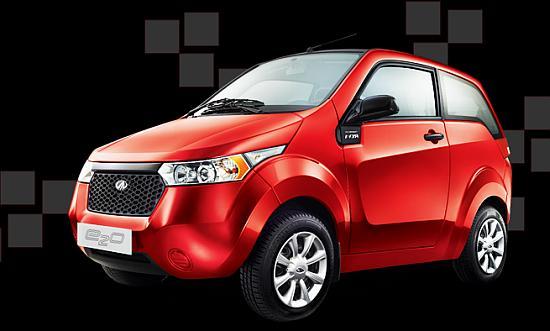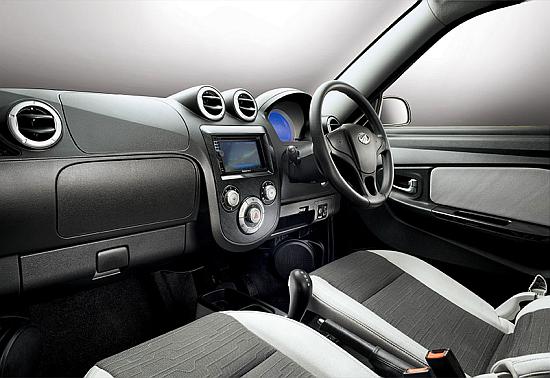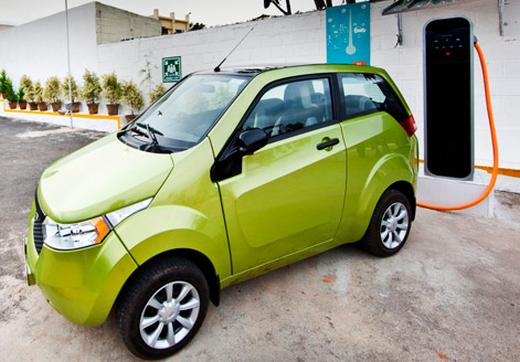Photographs: Courtesy, Mahindra Reva Swaraj Baggonkar in Mumbai
Every day, Kapil Diwan travels 80 km to work. The 29-year-old stockbroker plans to switch to a comfortable car to escape Mumbai's distressing train rides. With fuel prices so high, Diwan prefers an economical car.
Mahindra's all-electric car e2o (pronounced 'ee-too-oh'), launched on Tuesday, could be an ideal vehicle for customers like Diwan. The cost of running the car is just Rs 0.50 a km, much lower than petrol (Rs 4.5), diesel (Rs 2.7), and CNG (Rs 2.12).
It runs 100 kms a charge. Lithium ion batteries act as its power plant. The car can be charged from a simple 15A power socket, also used for laptops.
The e2o is low on maintenance, compared to internal combustion engines, is quiet and doesn't pollute the air.
It doesn't have gears, which means easy driving in heavy traffic. An overnight charge will power the car enough for a mild city commute the next day.
...
Mahindra e2o: Will it succeed in India?
Image: Interior of Mahindra Reva e2o.Photographs: Courtesy, Mahindra Reva
The advantages of the car fall short of several consumer buying parameters. Diwan can't enjoy a short weekend getaway in the e2o as the car does not support long drives given its limited range. Also, the top speed is only 80 km an hour.
The price, too, is on the higher side. At Rs 596,000 (on-road, Delhi), e2o is more expensive than Maruti Swift (Rs 448,000, ex-showroom, Delhi) and twice as expensive as the Maruti Alto 800 (Rs 299,000, ex-showroom, Delhi).
With the steep pricing, experts have raised questions whether the premium on the vehicle is justified, as the investment recovery period is bound to be much longer.
The cost of the battery is the single-most expensive component in an electric car, as much as third its cost.
The imported lithium ion battery, not yet locally made, could set you back by Rs 150,000 in case of a replacement. The car has just two doors and access to the back seat is through the front collapsible seats.
...
Mahindra e2o: Will it succeed in India?
Image: Mahindra Reva e2o.Photographs: Courtesy, Mahindra Reva
Unlike the US and Europe, where buyers of electric cars get government subsidy (from $1,000-11,000) or China (Yuan 60,000 or $10,000), India does not have such elaborate offers.
Mahindra & Mahindra was hoping the government would provide a rebate of Rs 150,000 to every buyer, including a 20 per cent rebate on the ex-factory price or Rs 100,000. However, the subsidy ended last year and the government hasn't renewed it.
Lack of government intervention in promoting electric cars has put off manufacturers. General Motors, for instance, was actively working on an all-electric version of the Spark hatchback for India and the foreign market, but abruptly shelved the plan.
Japanese major Nissan, too, was planning to launch an all-electric car in India called 'Leaf', but later pulled out, due to unfeasible domestic market conditions.
The Leaf, on sale in the US and China, delivers as much as 130 km, with a maximum speed of 150 km an hour.





article